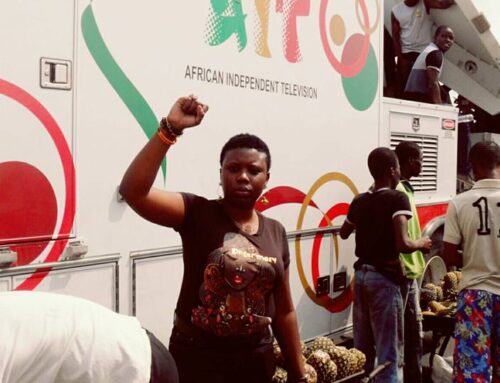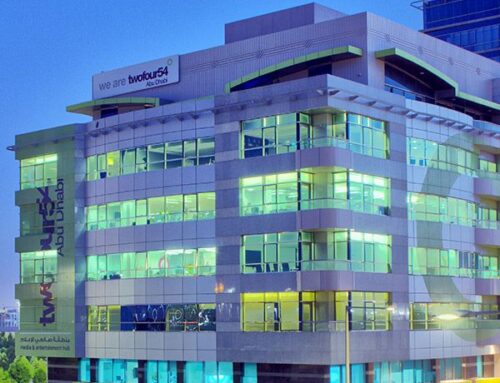“However, like it should be coined: The future of the egg is the chicks. If the chicks do not grow virile who will produce the eggs. The future of Nigeria is the burden of the current set of youths who are 35 years and downwards. If this age group is not well taken care of today, who will take care of the nation tomorrow? All the 20 largest global economies share one attribute – youth empowerment.“
IF we are to create a vision for the next one decade, we need to take special note of how far we have come, in the past one decade. The reality of reminiscences will, ultimately, determine the speed at which we can actualise our collective dreams as a nation. Nigeria is taking an audacious step towards attaining its vision for 2020. The content of the vision is well spelt out. It is, boldly, stated that Nigeria will be one of the World’s 20 largest economies in the year 2020. The coveted space is, however, currently occupied by United States, United Kingdom, Germany, China, France, Italy, Canada, Russia, Japan, South Korea, Saudi Arabia, Mexico, Netherlands, India, Indonesia, Australia, Turkey, Switzerland, Brazil and South Africa.
The possibility of attaining that vision is uncertain when we consider the fact that other nations are also working assiduously to consolidate their positions at the top of global economic ranking. The United States, for instance, is working towards providing more jobs by the day. Britain is initiating policies to restructure its social welfare, to avoid stark austerity compared to the rest of Europe. Brazil is poised to use its infrastructural development and foreign participations in the 2014 FIFA World Cup and the 2016 International Olympics, to a greater economic advantage, from revenue accruing from tourism and sponsorship. India and Indonesia are strengthening their exporting industries by creating policies that protect local industries for innovations and invention.
China is pushing for more power, in the global arena, by increasing its local content and cheapening labour to attract massive investment into the country. Germany is a great voice in Europe alongside France. Canada and Australia have good economies with strong ties with the United States and Britain. Saudi Arabia is using its great mineral deposit to an extra-ordinary advantage. South Africa is becoming a force to reckon with as the world’s second largest revenue-earner in tourism. Turkey is expanding, greatly, by taking advantage of trade with Africa. South Korea has proved its popularity when its President Park Geun Hyen, insisted that the country is more interested in growth than missile rivalry with North Korea.
Mexico is not doing badly. In fact, with the war over drug war-lords almost won, the country can turn the attention of its youth population to education, entrepreneurship and invention, as is obtainable in neighbouring U.S. Other countries on the list, like Russia, are not doing badly either.
It seems as though the wind of global development has not blown hard enough to rouse Nigeria’s leaders’ from their slumber. Or history is too dumb and insensitive to the course of events and records nothing that it sees. Nigeria has missed out on dream 2010 already, by failing to match reality with projection in managing the transition from military rule to democracy.
However, like it should be coined: The future of the egg is the chicks. If the chicks do not grow virile who will produce the eggs. The future of Nigeria is the burden of the current set of youths who are 35 years and downwards. If this age group is not well taken care of today, who will take care of the nation tomorrow? All the 20 largest global economies share one attribute – youth empowerment.
To go by international perspective, youth empowerment is an attitudinal and structural influence of youths to create change and be of use to themselves and the society. With reference to the Commonwealth Youth Programme (CYP), youth empowerment includes entrepreneurship training and micro-credit, participation in decision-making, professional training for youth workers, citizenship and human rights education, HIV awareness and counseling as well as ICT.
The United States is, continually, debating policies to protect its youths, either through gun-control or investment in research into brains for a better use of the human physiological and biological features. In Europe, the greatest concern of the European Union has been the collation of data on the number of youths who are jobless to provide succour for them, despite the growing austerity. India is working to curb the ‘substance of its future’, youths, from raping or being raped.
Here in Nigeria, the youths have become a ready mercenary for political or religious restiveness as witnessed in the recent insurgencies in the Niger Delta and in the North. These are rather an unstructured circumstances or responses to unmet national desires and aspirations. Besides, they are clogs on the wheel of the intelligent work and material sacrifices that have been invested in the nation since the Vision 2020 was initiated. The worst scenario is when these insurgencies and the like will be used as excuses when we would have passed the year 2020 and we are nowhere near the leading 25 largest economies in the world.
Nigeria’s private sector must recognise that they are shortchanging themselves by their limited contribution to the most productive section of our population. Deprived Young People see affluence and stupendous wealth being brandished in huge proportions daily yet we are consistently told that we are not such a rich country in cash but in oil. We see our leaders dressed in princely robes yet a majority of us live in penury and can barely eke out a living from jobs we only manage to get. Companies declare monumental profits yearly but there is no visible progression within the communities in which their enterprises thrive or on the lives of their consumers, in such a manner that their improved livelihoods are commensurate to their tremendous accumulation of profits.
An instructive case in point which I have shared and with which I have humbly advised a number of my mentors is the role and involvement of ordinary citizens in the Occupy Nigeria 2012 Protests. I noticed that while the discountenanced masses had no strategic plan upon which they had unanimously agreed to run their protest campaigns, it was evident they knew the homes and offices of the high and mighty of our country. The protesters did not march to slum areas and neighbourhoods where middle class Nigerians reside but they organised deliberately and vigorously walked miles to homes in places like Ikoyi, Victoria Garden City, Banana Island, Victoria Island etc threatening fire and brimstone, chanting war songs if they were not paid attention to. They confronted the tall, expansive building with courage and remained resolute in their pursuit. An influential Nigerian whispered to me that some oil magnates and politicians fled the country days before when they got wind of the imminent visit of emotionally battered Nigerians to their territories.
I do not know if you have also noticed the sudden resentment of the privileged (not necessarily rich) by the poor in our country today. During the protest, my SUV vehicle and that of several others who were also harassed were damaged as we drove around Lagos even after I had personally explained to these youths that I was moving around Lagos giving bags of pure water and bottled table water to protesters in different parts of Lagos. Though they saw the packs of water in my vehicle trunk, their statements and innuendoes suggested that whatever they forcefully took off us were their rights since we were riding horses and they were consumed by the vagaries of life. They did not even care to listen to the fact that we also had tales to tell and our Jeeps were mere means of transportation and we had no share of the national cake. This and many other scenarios in my opinion should send shivers down the spine of Nigerian elite that their days of tranquility and comfort are numbered and with the consistent killings and astronomical rise in crime in diverse geographical portions of the country. The CSR project of companies should not focus on few scholarships of individuals whose names we do not know nor can trace, it should not be building one borehole in a remote community, neither should it be helping SMEs vet business plans.
Sponsor Innovative initiatives; give out a small redundant space in your office complex to a promising small business, support a group of young people to conduct research in ascertaining the cure for HIV or breast cancer, just do something for posterity because though you are rich, your children will go to Harvard and Cambridge but will not be allowed to sleep at night once a group of hungry, jobless graduates identify them as your offspring. Ours is a country where First Class graduates leave school to become core professionals, the graduates with second class become business men and hire the first class graduates. The ones who graduate with 3rd Class become career politicians and hire those with 2nd and 1st Class. The ones who manage to go with a Pass or drop out become men of the underworld and rule all of us. I hope the rich have started looking closely to see that their children are not well rounded enough to fit into this tumultuous Nigerian environment where other youth who stayed put here have adapted to and are now running the show as they say.
However, there is good news surrounding the Vision 2020; it is the engendering of private sector support, according to the secretariat of National Steering Committee for the vision. This is already being made manifest in a number of private-public support schemes, to help empower the youths to be productive and responsible. Most of the support has come from the telecommunications sector. Companies like MTN, through its musical reality show, the MTN Project Fame, has made sure that talented youths who are aiming to make a career in music are given musical training, financial back-up and career guidance, to make their dreams come true. Under five years, the musical academy has produced no fewer than six musicians, who have become household names in the music industry and are still growing. These names include Iyanya, Chidinma, Praize, Kesse (a Ghanaian) and many others.
One must also commend The Guardian Newspapers, an institution that has demonstrated that they believe that talk does not cook rice but that if we must transform our nation, we must put our monies where our mouths are. For over one year now, The Guardian has committed the back page of their paper, which is a foremost reliable media channel in our country to young people to speak truth to power. They have shown that their allegiance is with the people, more importantly, the youth and the column continues to gather steam day in day out with increasing readership and an enthusiastic and passionate generation who now know they do not need to pay or patronise anyone to air their views in a national newspaper. If more organisations make a modicum of investment in the successor generation, Nigeria is a powerhouse in waiting. We own a population that, if actively engaged, can transform the fortune of this country, economically.
Just maybe the Nigerian government is also not aware that myriad Nigerian youth who have unfettered access to Social Media these days are the unofficial brand managers of the country. They share the opinion vociferously via all channels on the internet and the world perceives Nigeria based on their assessment of their own nation and unfortunately, this is beyond the ambit of government and private sector’s influence and control. This may seem minor but it is imperative to keep in mind that it has the potency to mar all the major efforts of the government to attract foreign investors into Nigeria. The best PR mechanism for any discerning government or private institution now is PERFORMANCE. Just do it.
If we must avoid the errors that made us miss out on the targets of Vision 2010, the youths must be the centre piece of major national policies henceforth. If the current crop of youths in the country who are aged between 20 and 30 get the right exposure, counseling, professional trainings, technological assistance and access to micro-finance, in the next five years, as witnessed in Project Fame, a musical academy and reality TV show, Nigeria can attain the objectives of the Vision 2020. Dreams, of course, can become reality, if the dreamers have the force of habit to work harder at them, yet dreams are good but realities are better.
Let the government and private sector also note that our generation is awakened to the realisation that white collar jobs will only be a drop in the ocean and therefore we advise that the government invest seriously in Vocational and Technical Training Centers that embody strong Business Management content and features.
We will also be grateful to see the current Honourable Minister for Youth Development do more of the job than he bears the title.
I hope this article will provoke deep reflection in the minds of all concerned and catalyze them to do the needful and restore the glorified position of Nigeria amongst the comity of nations, globally.
The record is not over yet. I RISE.




Leave a Reply